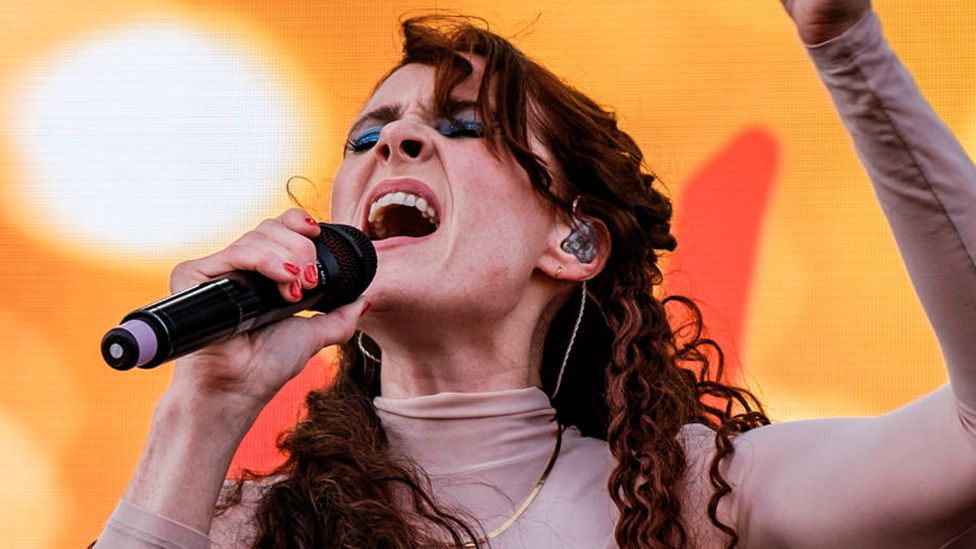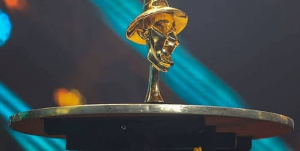Kate Nash says OnlyFans will earn more than tour
4 min read
Kate Nash, the British singer-songwriter, has revealed that she expects to make more money from her OnlyFans account than from her concerts. Nash joined the subscription-based platform, which allows creators to sell exclusive content, saying it was a way to financially support her music career in light of the difficulties faced by musicians touring in the current climate. Under the slogan “Butts for tour buses,” she explained that income from her OnlyFans will help subsidize the costs of her tours, as she believes that touring currently leads to more losses than profits.
Nash, who recently completed a three-week US tour and began her UK shows in Glasgow, stated that the financial model of touring is not sustainable for many artists. “Touring makes losses, not profits,” she said. For Nash, the reality of touring has been stark—either she would need to sell enough merchandise to cover the costs, reduce the wages of her band and crew, or make dangerous cuts to her traveling arrangements. She was unwilling to compromise on the quality of her performances or the safety of her team, leaving her with no way to profit from the tours. This has forced her to rethink how she funds her music career, which she described as a passion project rather than a profit-driven endeavor.
The singer also framed her decision to turn to OnlyFans as a form of protest against the music industry’s current dynamics. She saw it as an act of empowerment for women, allowing her to take control of her body and use it to fund her creative projects. “It’s a bit of a punk protest as a woman to take control of my body and sell it to be able to fund my passion project,” she explained. Nash is using her platform to highlight the financial struggles musicians face and shed light on the harsh realities of the music business. She also pointed out that, in a time when women are fighting for more agency, she has always posted photos of her posterior online, and now, she is capitalizing on it.
Nash’s OnlyFans content, while revealing, does not venture into explicit territory. She has shared images of her bottom, which she describes as a combination of “comedy and sexuality.” For Nash, taking pictures of her bum is something she enjoys, and she sees it as fun and empowering. “I think the arse is the perfect combination of comedy and sexuality,” she said. “I actually like bums. I think they’re just quite great. I think it’s funny. I enjoy taking pictures of my bum. Always been a bit of a flasher.”
Her decision to join OnlyFans is in response to what she sees as an unsustainable model for artists in the current music industry. The reality of streaming platforms, such as Spotify, where artists receive mere fractions of a penny per stream, is another factor in her move. Nash openly criticized the industry’s treatment of musicians, stating, “No need to stream my music, I’m good for the 0.003 of a penny per stream thanks.”
Nash’s comments reflect a wider trend in the music industry, with several artists, including Lily Allen, who also makes money from selling pictures of her feet on OnlyFans, admitting that the platform provides them with a more lucrative income than streaming services. Many musicians, such as Rachel Chinouriri, Ratboy, and Liela Moss, have canceled their tours in recent months, citing the escalating costs of touring as a major factor in their decision.
Nash pointed to a survey from Pirate, a network of recording and rehearsal studios, which found that most artists have not seen an increase in their gig fees despite rising ticket prices. She expressed frustration that while festival and ticket prices have skyrocketed, musicians’ wages remain stagnant, and costs continue to rise. “Festival prices and ticket prices have gone up drastically, but the musicians’ wage hasn’t,” she said. “You might be playing a venue that you’ve played multiple times and you can sell it out, but you’re getting the same fee that you did 10 years ago.”
Nash also criticized the industry’s focus on making profits for large corporations while smaller artists are left struggling. She argued that the industry’s failure to support working-class artists and encourage diversity in music is part of the broader problem. She suggested that musicians could learn a lesson from sex workers who have successfully monetized their content on platforms like OnlyFans. “You’ve got all this control, and you’re deciding what you want to do and how you want to do it, and people want to pay you for it,” she said. By taking control of their work, she believes musicians can regain agency and financial independence.
In conclusion, Nash’s decision to turn to OnlyFans is both a personal and political move, challenging the music industry’s traditional financial structures and advocating for greater empowerment and financial autonomy for artists. Through this shift, she hopes to inspire a broader conversation about how artists can better support themselves in an increasingly difficult industry.






